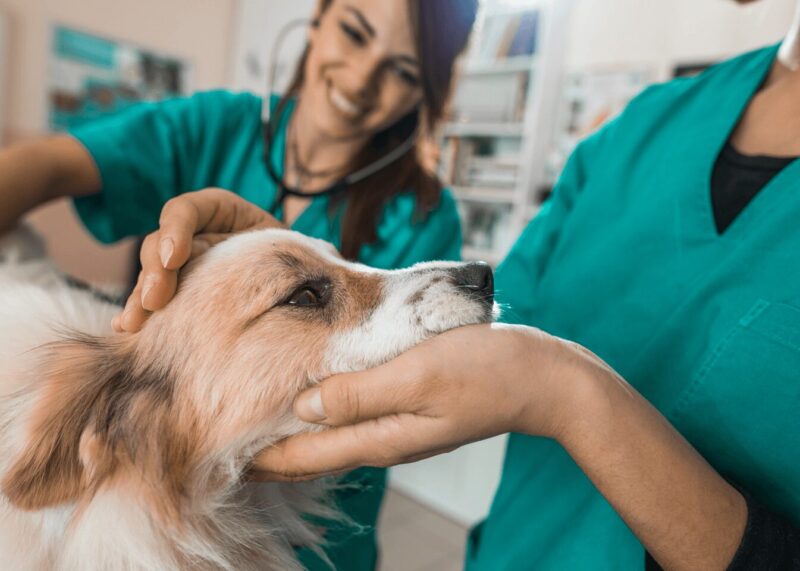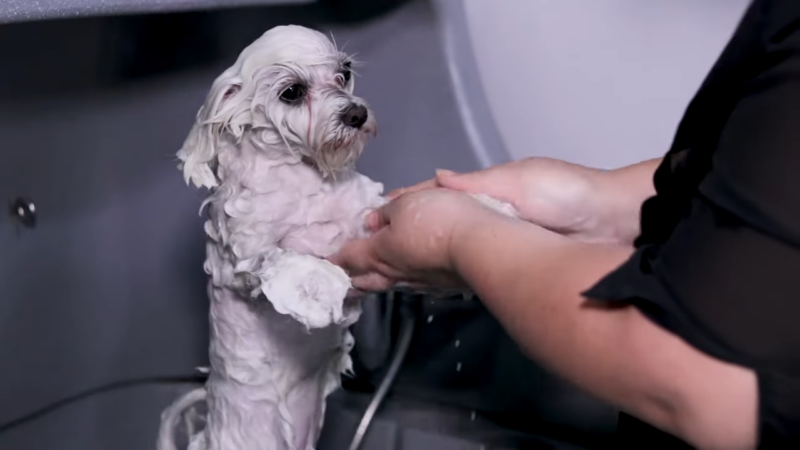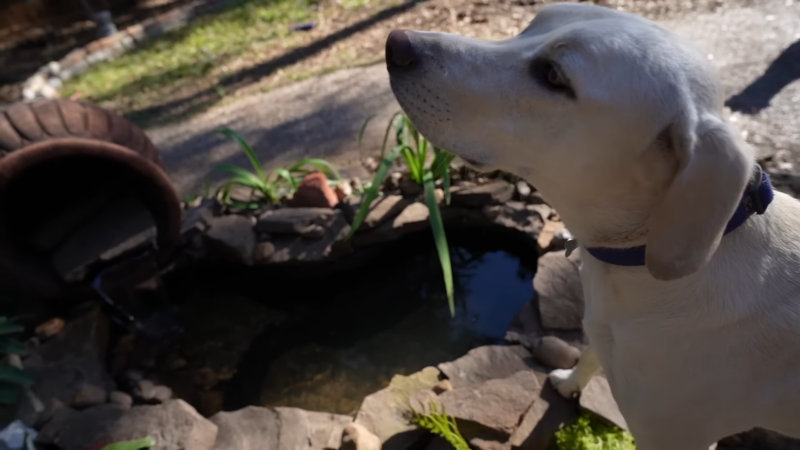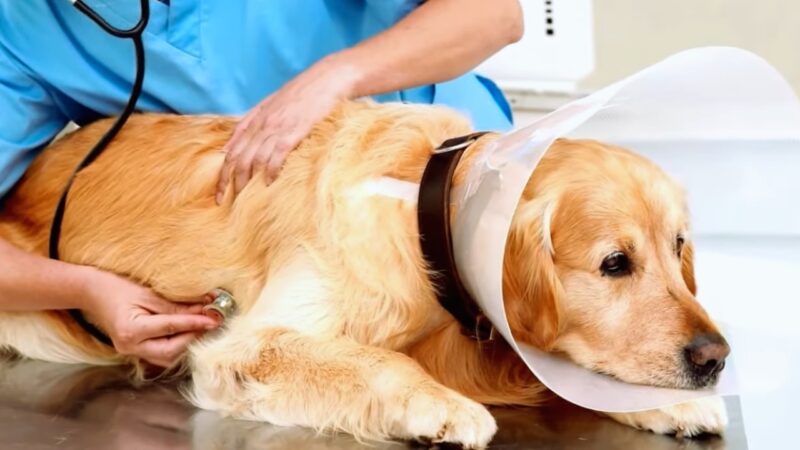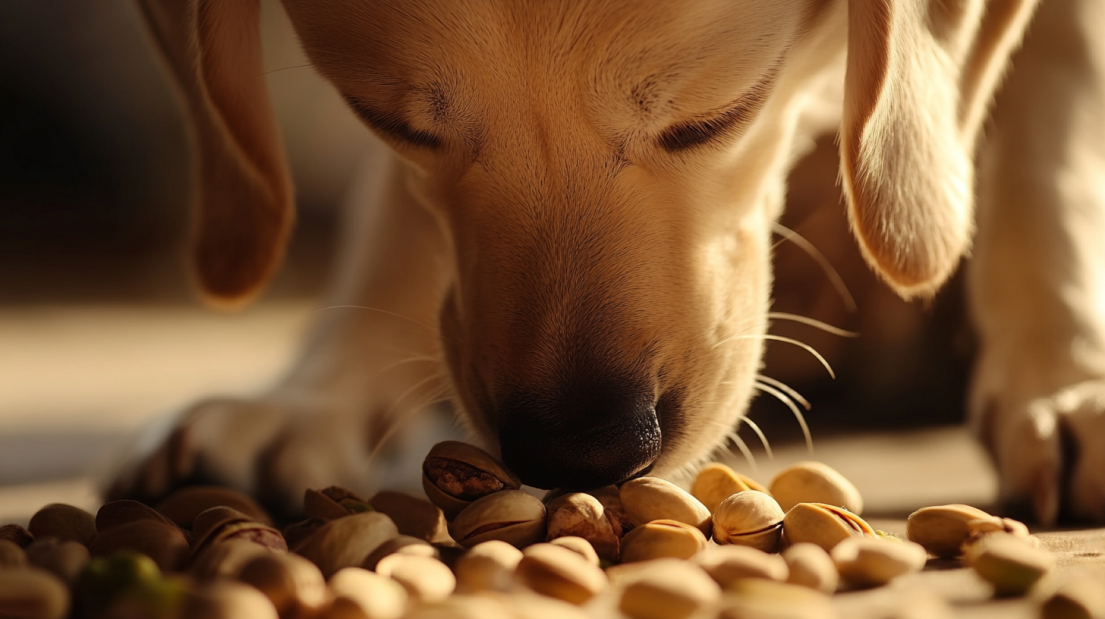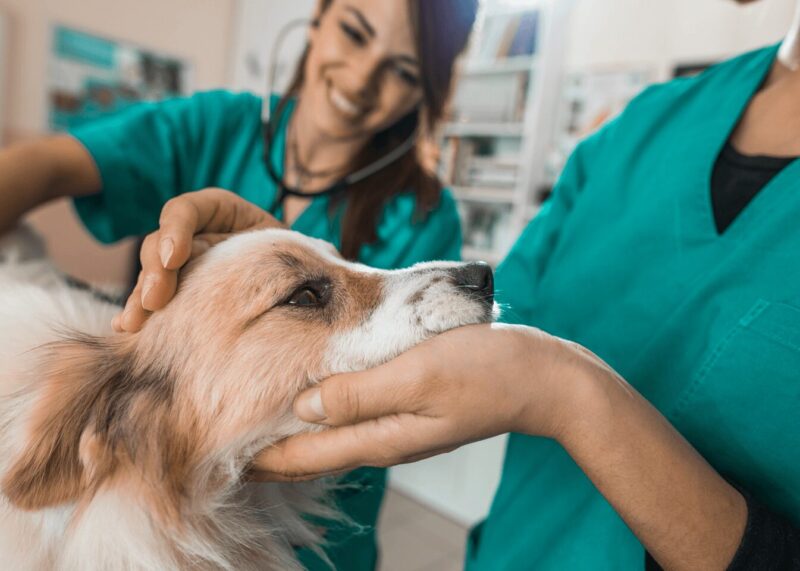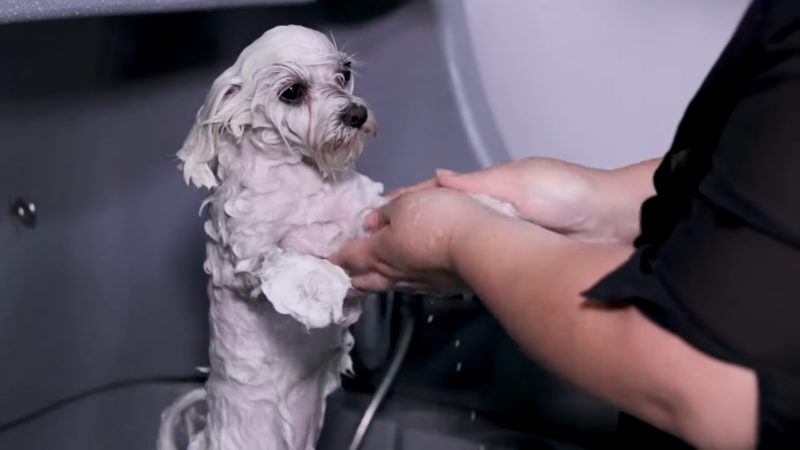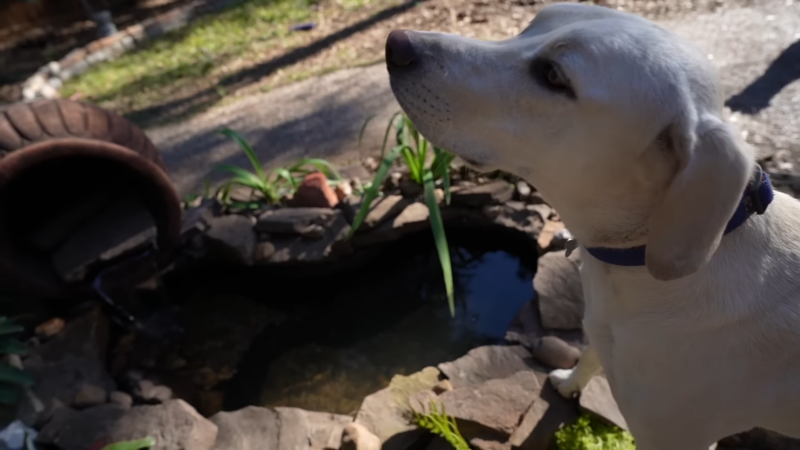
-
 Jane Harmon
Jane Harmon
- Published:
- Updated: March 12, 2024
- Category: Dog Specific Care, Pet Health and Care
Share Post:
As a loving pet owner, seeing your puppy in distress is alarming. If your dog is vomiting brown liquid, it’s important to understand the potential reasons.
This condition, while concerning, is not uncommon. In this article, we’ll explore 10 reasons why your pup might be experiencing this symptom.
By gaining insight into these causes, you can better care for your furry friend and decide when it’s time to seek veterinary help.
1. Dietary Indiscretion

Dogs are curious by nature and often eat things they shouldn’t. Consuming garbage, spoiled food, or non-food items can lead to gastrointestinal irritation, resulting in brown vomit.
This type of vomiting may also include undigested food particles or a distinct odor related to the consumed material. In such cases, monitoring your dog’s environment to prevent access to harmful substances is crucial.
If dietary indiscretion is frequent, it may also be a sign of underlying behavioral or nutritional issues that need addressing.
2. Gastrointestinal Blockages
Foreign objects like toys, bones, or fabric can block your dog’s gastrointestinal tract. This obstruction can lead to brown vomiting as the digestive process is disrupted.
If not treated promptly, blockages can cause severe health complications, including a risk of rupture in the gastrointestinal tract.
Symptoms accompanying this condition might include abdominal pain, lethargy, and loss of appetite. It’s vital to seek veterinary attention immediately if a blockage is suspected to prevent further health deterioration.
3. Gastritis
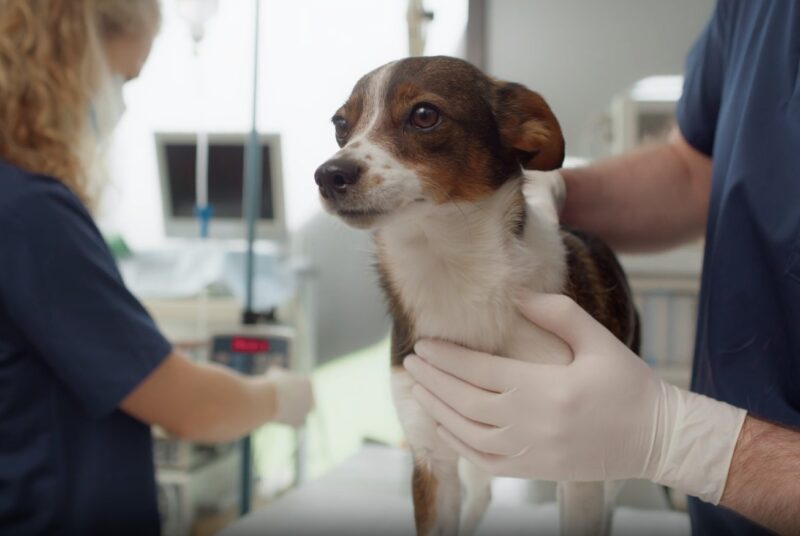
Gastritis, the inflammation of the stomach lining, often results from infections, allergies, or ingesting irritants. It can cause your dog to vomit a brown, often foul-smelling substance.
This condition may also be accompanied by signs of discomfort like whining, pacing, and a lack of interest in food. Chronic gastritis could indicate a more serious health issue and warrants a comprehensive veterinary evaluation.
Dietary management and medication can effectively treat gastritis, providing relief to your pet.
4. Internal Bleeding
Internal bleeding can present as brown vomit, which may resemble coffee grounds. This is a critical condition often caused by trauma, ulcers, or diseases.
If your dog has internal bleeding, the blood, upon reaching the stomach, partially digests and turns brown, leading to this specific vomit color.
This condition is particularly serious and requires immediate veterinary attention, as it can be indicative of a life-threatening situation.
It’s crucial to observe for other symptoms like pale gums, weakness, or a distended abdomen, which often accompany internal bleeding.
5. Liver Disease

The liver plays a vital role in detoxification. Liver disease can lead to brown vomit due to the buildup of toxins and bile in the system.
This occurs as the diseased liver struggles to efficiently process waste, causing a buildup of substances that can lead to gastrointestinal irritation and vomiting.
Dogs with liver disease may also show signs of jaundice (yellowing of the skin and eyes), increased thirst, and weight loss. It’s important to address liver disease early, as it can progress and lead to more severe health issues.
6. Pancreatitis
When the pancreas becomes inflamed, known as pancreatitis, it affects the digestive process. This can cause your pup to vomit brown liquid, accompanied by lethargy and loss of appetite.
Pancreatitis can be triggered by high-fat diets, certain medications, or other underlying health conditions. It’s a painful condition that can lead to dehydration and nutrient malabsorption.
Immediate veterinary care is essential to manage pain, provide supportive care, and address the underlying cause of the inflammation.
7. Parasitic Infections
Parasites like roundworms or hookworms can cause gastrointestinal distress, leading to the vomiting of brown liquid. These parasites can infect your dog through contaminated soil, feces, or infested prey.
Symptoms may include weight loss, diarrhea, and a dull coat, in addition to vomiting. Regular deworming and preventative measures are crucial in managing these infections.
It’s important to have your pet checked by a vet if you suspect a parasitic infection, as untreated cases can lead to more severe health issues.
8. Dietary Changes
Sudden changes in your dog’s diet can upset their stomach. This can result in brown vomiting as their system adjusts to new foods.
It’s best to introduce new foods gradually, mixing them with the current diet and slowly increasing the proportion over several days.
Dogs have sensitive digestive systems, and abrupt changes can disrupt the balance of gut bacteria. If your puppy continues to vomit after a dietary change, it’s advisable to consult a veterinarian to rule out food allergies or intolerances.
9. Dehydration

Dehydration can lead to a concentration of bile in the stomach, causing your dog to vomit a brownish liquid. This often accompanies other symptoms like dry gums, lethargy, and decreased urine output.
Ensuring constant access to clean water and monitoring your dog’s water intake is essential, especially in hot weather or after exercise.
Dehydration can quickly become severe, especially in puppies and older dogs, so prompt veterinary attention is recommended if you suspect your pet is dehydrated.
10 Stress or Anxiety
Dogs can experience stress and anxiety, which can impact their digestive system. This emotional distress can lead to the vomiting of brown liquid. Common causes of stress in dogs include changes in environment, loud noises, and separation from owners.
Providing a stable routine, comfort, and, if necessary, behavior therapy can help manage stress and anxiety in dogs. If symptoms persist, it’s important to consult a veterinarian, as chronic stress can lead to long-term health issues.
What to Do If This Happens?

If your dog is vomiting brown liquid, follow these steps:
- Assess the Situation: Take note of the frequency, amount, and appearance of the vomit. Check for other symptoms such as lethargy, diarrhea, changes in appetite, or signs of pain.
- Remove Food and Water Temporarily: If your dog is vomiting repeatedly, remove food and water for a few hours to let their stomach settle. However, ensure they don’t become dehydrated.
- Reintroduce Water Slowly: After a few hours without vomiting, offer a small amount of water. If your dog keeps it down, gradually increase the amount over time.
- Offer a Bland Diet: Once your dog has stopped vomiting and can keep water down, offer a bland diet like boiled chicken and rice in small, frequent meals. Gradually reintroduce their regular diet over several days.
- Monitor Your Dog’s Condition: Keep a close eye on your pup’s behavior and symptoms. If they improve, continue to monitor them as they return to their normal diet and routine.
- Seek Veterinary Care: If vomiting persists, if there are other concerning symptoms, or if your dog’s condition worsens, seek veterinary attention immediately. It’s important to rule out serious conditions like internal bleeding, blockages, or organ problems.
- Follow Veterinary Advice: If you visit a veterinarian, they may run tests like blood work or X-rays to diagnose the issue. Follow their treatment plan, which may include medication, dietary changes, or further medical intervention.
- Prevent Recurrence: Once your dog recovers, take steps to prevent future incidents. This includes maintaining a consistent diet, regular veterinary check-ups, keeping harmful substances out of reach, and monitoring for stress and anxiety.
FAQs
Can certain breeds of dogs be more prone to vomiting brown liquid?
Yes, some breeds may be more susceptible to conditions that can cause brown vomiting. Breeds with sensitive stomachs, like Yorkshire Terriers and German Shepherds, might be more prone to digestive issues.
Additionally, deep-chested breeds like Great Danes are at a higher risk for gastric torsion, which can lead to vomiting.
How can I distinguish between brown vomit and something else?
Brown vomit typically has a thick, liquid consistency and may contain food particles. It can range in shade from light brown to a darker, coffee-ground appearance.
If you’re unsure, it’s best to collect a sample in a clean container for your vet to examine.
Are there any specific home remedies I can try before going to the vet?
While home remedies are not a substitute for veterinary care, you can try fasting your dog for 12-24 hours and then reintroduce a bland diet, like boiled chicken and rice.
Ensure they have access to fresh water. If symptoms persist or worsen, seek veterinary attention immediately.
Could a change in my dog’s water source cause brown vomiting?
A sudden change in water, especially if it’s from a source that’s not clean or contains high mineral content, can upset your pet’s stomach.
It’s advisable to use filtered or bottled water if you’re traveling or have moved to a new area.
Is brown vomit always a sign of a serious health issue?
Not always. While brown vomit can be a symptom of serious conditions, it can also occur due to less severe issues like eating too fast or dietary indiscretion.
However, it’s important to monitor your dog and consult a vet if it persists or is accompanied by other symptoms.
Can regular vet check-ups help in preventing conditions that lead to brown vomiting?
Yes, regular vet check-ups can help in early detection and prevention of many conditions that might lead to brown vomiting. Regular health screenings, vaccinations, and parasite control play a significant role in maintaining your dog’s digestive health.
Conclusion
Understanding the reasons behind your dog’s brown vomiting is crucial for their health and well-being. If you notice this symptom, it’s important to monitor your pup closely and consult a veterinarian.
Early detection and treatment can make a significant difference in your dog’s recovery and overall health. Remember, your awareness and timely action can be a lifesaver for your furry companion.
Related Posts:


